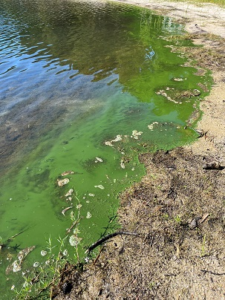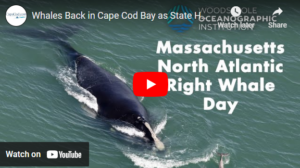
Cyanobacteria at Goose Pond. Town of Chatham.
HYANNIS – The Association to Preserve Cape Cod released an annual review of the region’s water quality and the data supports the continuing decline of local waters.
The assessment found the amount of embayments with unacceptable grades continues to climb, including all embayments on Nantucket Sound and most in Buzzards Bay except for Falmouth’s Quissett Harbor.
Nauset Estuary and Pleasant Bay also received poor marks.
The percentage of embayments with unacceptable water quality on the Cape rose to 90%, representing 43 out of 48 included in the study .
About a third of freshwater ponds included in the study were also found to be in poor health. The data ties in several public health advisories due to cyanobacteria blooms. (The study included about 150 ponds of the Cape’s almost 900, but data isn’t available for all of them.)
Insufficiently treated wastewater from septic systems continues to be the biggest factor in impacted bodies of water. Fertilizers and stormwater runoff were also listed as additional factors.
The review comes as the state hopes to address water quality issues with proposed changes to Title 5.
The report also found that the majority of the region’s public water supplies are still receiving excellent grades, with the exception of a few.
Based on data from 2021, the review found the Otis Air National Guard’s supply received a poor grade for bacteria detection that resulted in a boil order on Joint Base Cape Cod.
The Yarmouth Water Department also received low marks for exceeding the state limit of PFAS6 at a few groundwater sources also back in 2021.
Although Yarmouth was the only town that exceeded the state’s levels of the chemicals, the chemicals were also detected in 10 other public water supplies that year.
“The widespread detection of PFAS in public water supplies is a wakeup call that underscores the need for monitoring as well as planning and implementation of effective treatment methods,” Association to Preserve Cape Cod Executive Director Andrew Gottlieb said.
By Brian Engles, CapeCod.com NewsCenter























